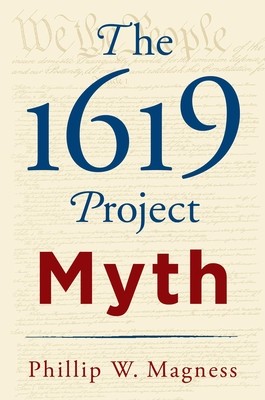
- We will send in 10–14 business days.
- Author: Phillip W Magness
- Publisher: Independent Institute
- ISBN-10: 1598134094
- ISBN-13: 9781598134094
- Format: 15.5 x 23.1 x 1.8 cm, kieti viršeliai
- Language: English
- SAVE -10% with code: EXTRA
Reviews
Description
Economic historian Phil Magness tackles the many falsehoods and misconceptions of the New York Times 1619 Project, a progressive political project that attempts to rewrite the American founding story as one of oppression (1619), rather than liberation (1776). When historical discussions devolve into partisan identity politics, Magness steps up to apply his decades of rigorous scholarship.
Magness's critique caused the New York Times to recall and quietly revise portions of the text, including outright factual errors ignored by the editors. But more importantly, the book aims to reignite a worthwhile conversation on the consequences of slavery and abolition in the United States -- one based in intellectual humility and factual history, not an ideological agenda.EXTRA 10 % discount with code: EXTRA
The promotion ends in 21d.08:09:22
The discount code is valid when purchasing from 10 €. Discounts do not stack.
- Author: Phillip W Magness
- Publisher: Independent Institute
- ISBN-10: 1598134094
- ISBN-13: 9781598134094
- Format: 15.5 x 23.1 x 1.8 cm, kieti viršeliai
- Language: English English
Economic historian Phil Magness tackles the many falsehoods and misconceptions of the New York Times 1619 Project, a progressive political project that attempts to rewrite the American founding story as one of oppression (1619), rather than liberation (1776). When historical discussions devolve into partisan identity politics, Magness steps up to apply his decades of rigorous scholarship.
Magness's critique caused the New York Times to recall and quietly revise portions of the text, including outright factual errors ignored by the editors. But more importantly, the book aims to reignite a worthwhile conversation on the consequences of slavery and abolition in the United States -- one based in intellectual humility and factual history, not an ideological agenda.

Reviews